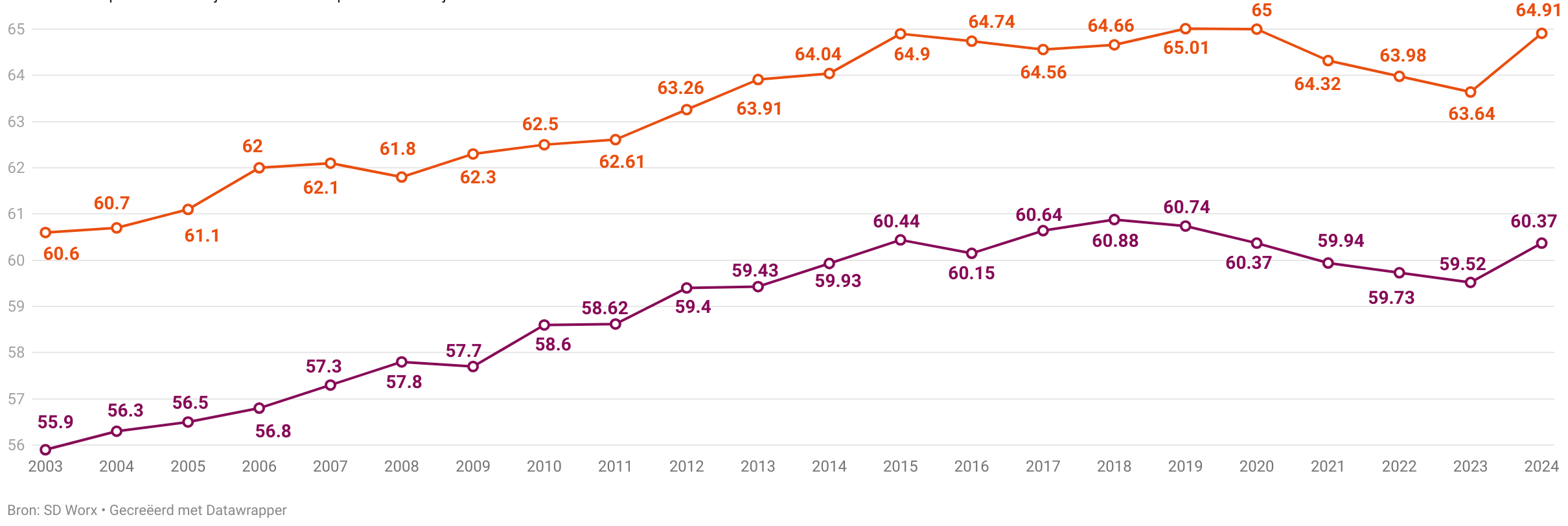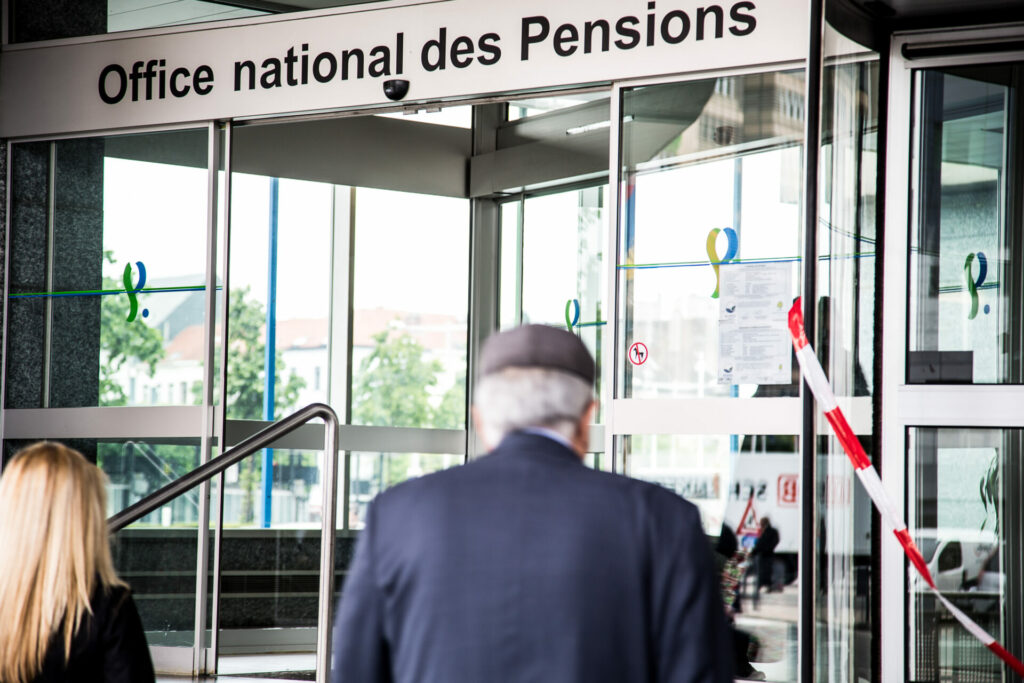The reality that employees will have to work longer is setting in, as both the desired and expected age at which people stop working has increased in Belgium.
People living in Belgium have gradually adjusted their expectations in terms of retirement age over the past 20 years, an employee survey of HR specialist SD Worx showed. Having dreamt of retiring at just 56 years of age in 2004, people now indicate that their ideal retirement age is 60. This age differs from the expected retirement age of 65. The gap between the two has remained largely constant over the past two decades.
"Both ages are moving up," said Director of the SD Worx Knowledge Centre Bart Pollentier. This is likely the result of the government telling employees for some time that they will have to work longer. "People resign themselves to that. We expect to work five years longer than what we think is ideal."

Expected retirement age (orange line, referring to the age at which people think they will retire regardless of the legal retirement age), compared to ideal retirement age (purple line, the age at which employees hope to retire). There was a slight dip in both ages after the pandemic. Credit: SD Worx
The younger a person is, the earlier they wish to retire. The expected retirement age of 65 differs little between age groups, however this is not the reality that today's young people are facing as the statutory age continues to rise.
Statutory vs effective retirement age
The current expected age corresponds to the statutory retirement age of 65. However, this will only be maintained until the end of this year before being raised to 66 for people whose pension starts between 1 February 2025 and 31 January 2030 and to 67 if the pension starts from 1 February 2030.
Aside from the differences in people's intentions and aspirations, there is also a gap in the statutory (the legal retirement age depending on the number of years worked) and effective pension age (when people stop working).
OECD figures from 2022 show that the effective retirement age in Belgium was 61 among men and women, four years below the statutory retirement age at the time. France and Luxembourg are the only other European countries to have a lower effective retirement age.
This gap highlights a growing challenge: a report by the Study Committee on Ageing showed the employment rate in the 55-66 category is only 54.6%, and as low as 42% among 60 to 64-year-olds.
Given the cost of ageing and longer life expectancy – which rose from 78.3 years to 82.3 years between 2003 and 2023 – increasing the employment rate of this age group is vital. To cope with these costs, the employment rate among these age groups needs to rise to around 69.2% by 2050.
Related News
- Overly generous? Calls to clampdown on Belgium's 'unlimited' unemployment benefits
- Cost of Belgium's ageing population will grow deficit without policy changes
Ensuring that people are in jobs which satisfy them is key in this effort, as the survey found that those who found joy in their job want to work longer: they indicate an ideal career of 30 years on average instead of 25 years for those who are less or not satisfied with the job they currently have.
"It is a joint responsibility of employers and employees to work out solutions that make work meaningful beyond the age of 55," said Pollentier.

